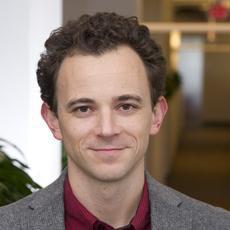Law without lawyers: Improving access to justice in Liberia and Sierra Leone
Since the advent of peace, democratically elected governments in both Liberia and Sierra Leone, with support from international donors, have strengthened the rule of law by expanding the reach of the formal legal system and promulgating progressive new legislation, oftentimes at odds with local norms and customs. These measures have met with little success, in part because ordinary citizens know little about the formal law and prefer the more 'restorative' justice meted out by traditional institutions, and in part because the formal system is hard to access, corrupt, and opaque. This project will investigate the effectiveness of two new, relatively untested initiatives to strengthen post-conflict legal institutions in both countries. At the core of both interventions is the provision of pro-bono legal services to individuals with limited access to formal justice systems by paralegals trained to work at the intersection of customary and formal law. This is an alternative approach to improving access to justice and the rule of law, which stresses information provision and advocacy, informal mediation and collaboration with customary authorities, and using low-skilled-labour intensive approaches to expanding legal services in remote rural areas. The project has three broad aims: to identify “what works” in legal empowerment/access to justice programmes in post-conflict settings, to collect new, multi-purpose datasets on the functioning of customary and formal legal systems and local perceptions of customary and formal law, and to develop and test existing theoretical models of legal systems and justice provision in developing country contexts using experimental variation induced by the interventions. In Liberia, the project will conduct a randomised trial of mobile paralegals who provide legal advice and conflict mediation services to rural villagers with little access to formal legal institutions. Paralegals are trained in mediation, advocacy, domestic law, and the roles of the different legal agencies. They travel regularly to remote rural communities visiting each 1-2 times a month, assisting disputants in negotiating local problems and directly mediating disputes if so requested. The project will estimate the impacts of the intervention on dispute resolution, conflict mitigation, and household economic behaviour. In Sierra Leone, the project will evaluate a new initiative by an established local NGO, Timap for Justice, to monitor conditions in police stations and prisons and provide free legal advice and help to the accused. Timap for Justice has assigned several new paralegals to work exclusively on the criminal justice sector. Paralegals provide several functions including on-the-spot legal advice to the accused, notifying next of kin when police fail to do so, facilitating witness appearance at trial, and submitting evidence to courts. The project will estimate the impact of the intervention on the speed and efficacy of case resolution, incidence of pre-trial detention, and procedural violations.





